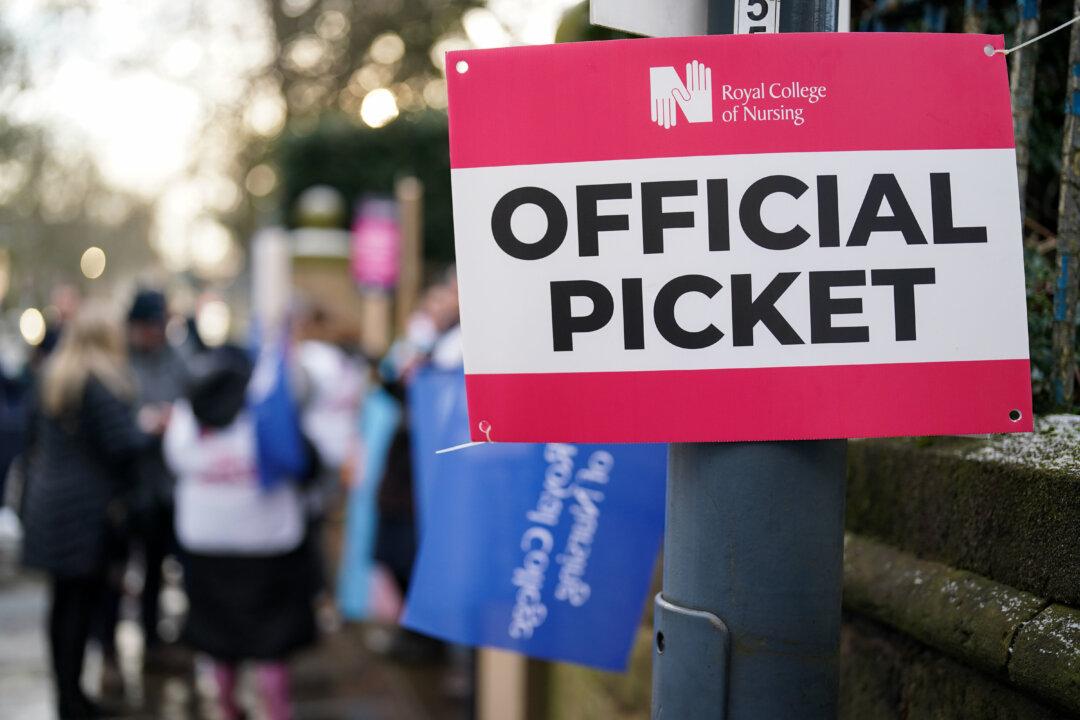The National Health Service (NHS) is trapped in a vicious cycle of winter pressures and strikes, Matthew Taylor, chief executive of the NHS Confederation said as thousands of nurses walked out on Wednesday over pay.
Speaking to the PA News Agency, Taylor said without a “realistic prospect of a solution” to the pay dispute, the NHS is “facing the prolonged war of attrition between the government and the unions that we’ve been fearing.”





